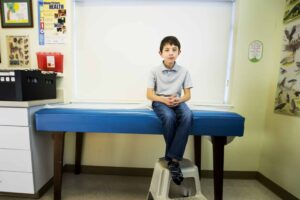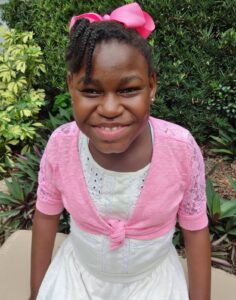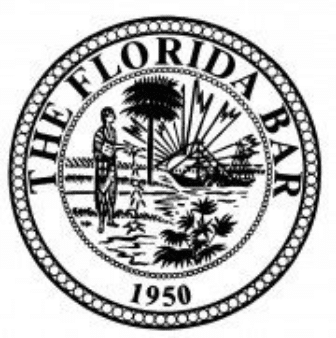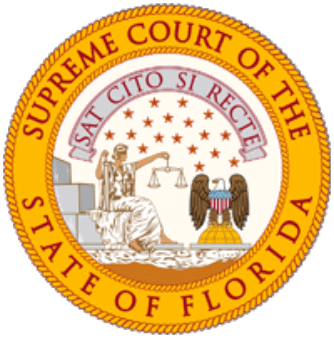Brittney Carroll, 11, smiles broadly and extends her hand in greeting to welcome a visitor to her family’s Tallahassee farm, where she and her six siblings help care for a menagerie that includes dogs, cats, ponies, goats, chickens, rabbits, a donkey and a cow named Buttercream.
Born prematurely and with a panoply of medical disorders that could shorten her lifespan, Brittney spent years in and out of Orlando hospitals and medical foster homes until Brian and Shannon Carroll got a phone call from a Wendy’s Wonderful Kids recruiter asking if they would consider adopting her.
“We told her, ‘Yes, we would absolutely be interested in taking this little girl,’ because we believe that all life is valuable and that all children deserve a loving family, whether they are going to pass away, whether they have special needs, no matter what the issues are,” Shannon Carroll said. “We made a commitment to God a long time ago that if we were ever called to take a child we would consider that a call from Him.”
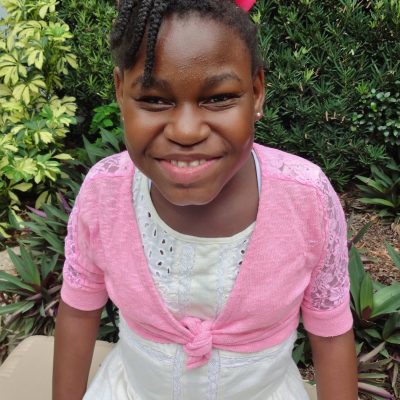
In spite of their faith and their willingness to open their home for the first time to a child with special needs, the Carrolls encountered roadblocks in their effort to adopt Brittney. But Brittney had a Guardian ad Litem attorney who went to bat for her, and he in turn had the support of a legal aid attorney funded in part by The Florida Bar Foundation.
“It was just a great tag team,” Brian Carroll said.
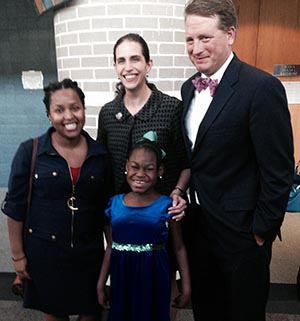
Brittney’s GAL attorney, Richard Dellinger of Lowndes, Drosdick, Doster, Kantor and Reed in Orlando, had been with her for eight years and worked with Ericka Garcia, then with the Legal Aid Society of the Orange County Bar Association, to provide Brittney with educational and developmental opportunities while in foster care and to make sure she would eventually find permanency.
Things were starting to look up for Brittney in foster care, thanks to Garcia and Dellinger’s advocacy, but then she ended up being hospitalized for eight months. One day Dellinger was told that Brittney didn’t have long to live, so he went to see her and was surprised to find that not only was she going to live, but she was asking to go home. Dellinger immediately called on the Florida Department of Children and Families to get Brittney out of the hospital, where he felt she was essentially being warehoused.
“The foster mom wouldn’t take her back, so we got her out of the hospital and found another medical foster home that would take her,” Dellinger said, “It was a good home, but still just a foster home.”
Over the objections of Brittney’s new foster mom, Dellinger and Garcia succeeded in getting her enrolled in school for the first time in years. There she received speech and other therapies, had the chance to interact with peers, began walking as opposed to spending all her time in a wheelchair, and quickly moved from a nonverbal to a verbal classroom.
As a developmental disabilities attorney working under a Florida Bar Foundation Children’s Legal Services grant, Garcia made sure Brittney had an individualized education program (IEP) that provided her access to all of the educational services to which she was legally entitled.
“That’s one area where Ericka was really helpful with her expertise,” Dellinger said. “Because I’ve never done an IEP, but we worked together, and Ericka went out to the school and met with the teachers and developed that IEP.”
Garcia said Brittney was starting to blossom being around teachers and other children.
Then Wendy’s Wonderful Kids, a program funded by the Dave Thomas Foundation that helps match special needs children with adoptive parents, found the Carrolls, and Dellinger began advocating for something Brittney had never had before – a family that would be hers forever.
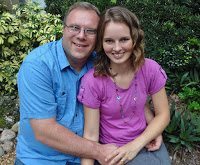
But when Brittney made her first visit to the Carrolls’ farm in June, she had just one day to get used to her potential adoptive home when she ended up back in the hospital. And because Children’s Medical Services, the state agency responsible for managing Brittney’s medical care, had not transferred her care to Tallahassee, Shannon had to hop onto an ambulance and return with her to Orlando, where she stayed by Brittney’s side for a month in the hospital, leaving her husband and their friends from church to look after the family’s six other children.
Shannon, who homeschools her children while her husband manages a Chick-fil-A restaurant, had never been separated from her children for more than a couple of days and suddenly found herself in a hospital in a strange city, without a car, spending her days changing Brittney’s diapers and holding her vomit bucket as the child struggled to overcome pancreatitis. Feeling homesick and overwhelmed, Shannon had moments of uncertainty.
“But we really felt like the moment we said yes on the phone this little girl was ours, just as if we’d birthed her,” Shannon said. “If I gave birth to a biological baby, and they had to go to the hospital, well, where would I be? I’d be at the hospital. So, we decided to keep our commitment to Brittney, that wherever it lead us, that’s where we would be.”
That’s when Dellinger’s role became critical to the success of the adoption. The episode made it clear that if Brittney was going to live in Tallahassee, CMS had to transfer her medical care there, but the agency was refusing.
“Feet were dragging,” Brian said, adding that he and Shannon did not want to push too hard for fear of appearing angry and being judged unfit to parent Brittney.
As Brittney’s advocate, Dellinger had no such fears. He demanded a conference call with all the agencies involved in Brittney’s case to arrange for her medical care be transferred.
“Richard was really good about being the guy who was behind us and fighting the fights that we’re not so comfortable taking up, and saying, ‘This child needs to go home. This child needs permanency,’ ” Shannon said.
Dellinger told Brittney’s caseworkers that they needed to support her adoption because it was going to happen. Then, after a status hearing to which the Children’s Medical Services caseworker didn’t show up, he consulted with Garcia and another legal aid attorney and they agreed that he could ask the judge to have her court-ordered to appear, which the judge did.
The strategy worked. Within 24 hours the judge held another hearing, at which the caseworker agreed to have Brittney’s medical care transferred.
On Sept. 11, just three months after Brittney fell ill in Tallahassee, her adoption was finalized. Now a student at Gretchen Everhart, a Tallahassee school for special needs children where she gets the therapies she needs, Brittney recently went camping near Ocala along with her family on a trip organized by the school. Brittney got to try her hand at archery, tie dye a T-shirt, go to a dance and splash around in the pool – her favorite activity of all.
“We’ve done a lot of firsts,” Shannon said. Like riding an escalator, which gave Brittney the giggles, or going skating, which Brittney did in her wheelchair with Shannon pushing her.
At home, though, the wheelchair in which Brittney used to spend most of her time sits unused in a corner of the dining room. Brittney instead has the freedom to play with her dolls and dress-up clothes, sit on the floor petting her dog Fez, or sweep the floor, an activity she enjoys. As she saunters about the house, she flashes her wide grin almost any time she makes eye contact with another person, which is often in a household of nine. Just one sign points to her serious medical condition: the little backpack Brittney wears holds the only food she can eat, which is dispensed to her all day through a tube.
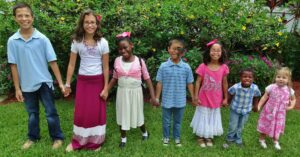
The Carrolls don’t feel as though they alone could have cared for Brittney.
“To be honest, anybody could love her. She’s an awesome kid,” Shannon said.
But she and Brian know Brittney is better off having a family than being in a medical foster home, where she eventually would have aged out, at which point she most likely would have been sent to live in an institution.
“She had a medically trained foster home,” Shannon said. “Her need was to find an adoptive family, somebody who would be with her forever, and who would commit to love her long-term, regardless of her disability, and that’s what we told them we were. We’re no more, we’re no less than this.”
On Brittney’s adoption day, after witnessing the adoption Dellinger left in a hurry before his emotions got the best of him.
“I felt like I was losing my kid. I had to leave pretty quick,” he said. “But it’s good. Right now she is in the best place. She is exactly where she needs to be, with a great family, a wonderful family.”
These are tender words from a lawyer who on any given day is handling $300 million trust cases and dealing with corporate giants.
“I work for large companies and wealthy individuals, but I treat cases for the poor just like I do any of the rest of them,” said Dellinger, who keeps about three pro bono cases going at a time and is also serving this year as president of the Legal Aid Society of the Orange County Bar Association.
Dellinger said his collaboration with Garcia on Brittney’s case is a great example of the importance of legal aid to the success of pro bono attorneys.
“The expertise of having a legal aid lawyer, funded through the Foundation and other sources, is huge for an advocate, because that is expertise that I would not have. I would not know how Children’s Medical Services has been treating other kids. I wouldn’t know how to work with CMS. That’s why we have legal aid law firms, so we can have specialists in these areas,” he said.
Garcia, who is now director of pro bono partnerships for The Florida Bar Foundation, is working to facilitate the development of programs that will tap into the power of lawyers like Dellinger who are willing to make pro bono a part of their practice. And she plans to help strengthen the bridges between private pro bono efforts and legal aid.
“In Brittney’s case and in many others, I have seen it work,” Garcia said. “I look forward to helping make sure it happens on a more widespread and routine basis, and to helping ensure that the system is dynamic and well-oiled and that we’re all-systems-go for kids like Brittney and for many others in need of civil legal assistance.”
